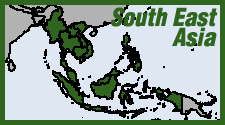 To mark International Day against Drug Abuse and Illicit Trafficking June 26, Burmese authorities held drug-burning ceremonies, boasting the destruction of seized opium, heroin and methamphetamine said to be worth a combined $130 million. The mass burnings in Rangoon, Mandalay and Taunggyi were attended by officials from the DEA as well as from Chinese drug enforcement agencies. But UN officials meanwhile warned that illicit drug production in Burma continued to rise—mostly to supply a growing Asian market. Jeremy Douglas, UN Office on Drugs and Crime (UNODC) Southeast Asia representative, told The Irrawady website that Burmese opium production was "in 2006, at the lowest point, representing roughly 7% of the global production; it is now 18%. So it has increased year on year." As usual, the bulk of the opium was produced in Shan and Kachin states, where tribal armies have long used the opium trade to finance their insurgencies. But Douglas, speaking at a Rangoon press conference announcing release of the UNODC's new World Drug Report, also said Shan state has become a major transshipment point for methamphetamine—seizures of which in Southeast Asia are at the "highest levels ever recorded."
To mark International Day against Drug Abuse and Illicit Trafficking June 26, Burmese authorities held drug-burning ceremonies, boasting the destruction of seized opium, heroin and methamphetamine said to be worth a combined $130 million. The mass burnings in Rangoon, Mandalay and Taunggyi were attended by officials from the DEA as well as from Chinese drug enforcement agencies. But UN officials meanwhile warned that illicit drug production in Burma continued to rise—mostly to supply a growing Asian market. Jeremy Douglas, UN Office on Drugs and Crime (UNODC) Southeast Asia representative, told The Irrawady website that Burmese opium production was "in 2006, at the lowest point, representing roughly 7% of the global production; it is now 18%. So it has increased year on year." As usual, the bulk of the opium was produced in Shan and Kachin states, where tribal armies have long used the opium trade to finance their insurgencies. But Douglas, speaking at a Rangoon press conference announcing release of the UNODC's new World Drug Report, also said Shan state has become a major transshipment point for methamphetamine—seizures of which in Southeast Asia are at the "highest levels ever recorded."

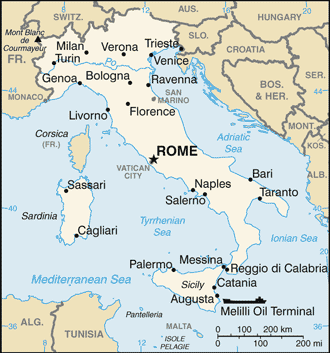 A 15-count indictment was unsealed Feb. 11 in a Brooklyn federal court, charging seven defendants with narcotics trafficking, money laundering, and firearms offenses based on what an
A 15-count indictment was unsealed Feb. 11 in a Brooklyn federal court, charging seven defendants with narcotics trafficking, money laundering, and firearms offenses based on what an 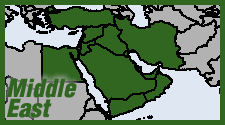 The past year has seen a spate of
The past year has seen a spate of 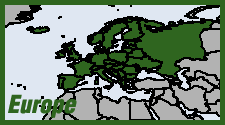 Italian police say Albania, the impoverished Balkan country just across the Adriatic Sea, is the source for vast quantities of cannabis entering G8 and EU member Italy. In the latest major haul in July, Italian Finance Police intercepted a full metric ton of cannabis from a speedboat along the coast of southern Puglia region. Four crewmen were arrested—two Italian and two Albanian. This came one month after the Finance Police released the results of months of air reconnaissance of Albania's hinterland, undertaken in a joint operation with Albanian police—identifying 500 cannabis plantations, accounting for a combined production of 1,000 metric tons with an estimated retail value of 4.5 billion euros. Over the past 20 years since the fall of its rigidly closed Communist dictatorship, Albania has won the title of "Europe's Afghanistan" for its prodigious cannabis production.
Italian police say Albania, the impoverished Balkan country just across the Adriatic Sea, is the source for vast quantities of cannabis entering G8 and EU member Italy. In the latest major haul in July, Italian Finance Police intercepted a full metric ton of cannabis from a speedboat along the coast of southern Puglia region. Four crewmen were arrested—two Italian and two Albanian. This came one month after the Finance Police released the results of months of air reconnaissance of Albania's hinterland, undertaken in a joint operation with Albanian police—identifying 500 cannabis plantations, accounting for a combined production of 1,000 metric tons with an estimated retail value of 4.5 billion euros. Over the past 20 years since the fall of its rigidly closed Communist dictatorship, Albania has won the title of "Europe's Afghanistan" for its prodigious cannabis production.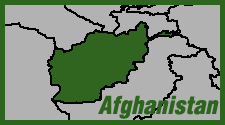 The
The 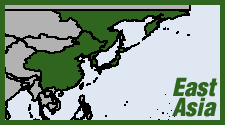 Authorities in Hong Kong are boasting that the city's long-reigning criminal gangs, the notorious Triads, are finally crushed following an operation coordinated with police forces in Macau and mainland China's Guangdong province, in which more than 14,000 were arrested and 2,500 properties raided—including discos, massage parlours and nightclubs. Police confiscated HK$39.3 million (US$5 million) worth of illicit goods, including drugs, contraband cigarettes, pornography and weapons. Leading figures in the powerful Sun Yee On and 14K triads are said to be among the detained.
Authorities in Hong Kong are boasting that the city's long-reigning criminal gangs, the notorious Triads, are finally crushed following an operation coordinated with police forces in Macau and mainland China's Guangdong province, in which more than 14,000 were arrested and 2,500 properties raided—including discos, massage parlours and nightclubs. Police confiscated HK$39.3 million (US$5 million) worth of illicit goods, including drugs, contraband cigarettes, pornography and weapons. Leading figures in the powerful Sun Yee On and 14K triads are said to be among the detained. 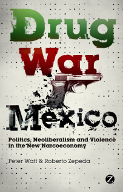 As nightmarish violence continues in Mexico, with horrific massacres and chaotic urban warfare right on the USA's southern border, a couple of academics at England’s University of Sheffield provide a readable 250-page primer on why this is happening now, and take a stab at what can be done to address the crisis—other than escalating it with militarization.
As nightmarish violence continues in Mexico, with horrific massacres and chaotic urban warfare right on the USA's southern border, a couple of academics at England’s University of Sheffield provide a readable 250-page primer on why this is happening now, and take a stab at what can be done to address the crisis—other than escalating it with militarization.





Recent comments
1 week 4 days ago
2 weeks 4 days ago
6 weeks 4 days ago
10 weeks 2 days ago
14 weeks 3 days ago
15 weeks 1 day ago
25 weeks 1 day ago
29 weeks 1 day ago
30 weeks 2 days ago
30 weeks 2 days ago